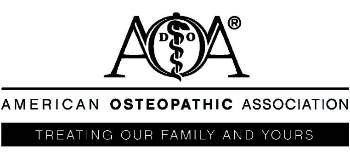Optometry
Overview:

Doctors of Optometry (ODs) are the independent primary health care professionals for
the eye. Optometrists examine, diagnose, treat and manage diseases, injuries and disorders
of the visual system, the eye, and associated structures. They also identify related
systemic conditions affecting the eye.
ODs diagnose and treat, prescribe medications, perform certain surgical procedures, provide vision therapy and low vision rehabilitation, and assist patients with eyeglasses and contact lenses. They counsel patients regarding surgical and non-surgical options to meet their visual needs. In cases involving surgery, they provide both pre-operative and post-operative consultation and care. ODs also diagnose systemic conditions that have eye-related symptoms (i.e., diabetes or high blood pressure) and refer patients to other health practitioners, as needed.
Optometrists should not be confused with ophthalmologists or dispensing opticians. Ophthalmologists are physicians who perform eye surgery, in addition to diagnosing and treating eye conditions. Dispensing opticians fit eyeglasses and contact lenses following prescriptions written by ophthalmologists or optometrists.
Recent graduates of PennWest Clarion have been accepted to the following Chiropractic programs:
| Illinois College of Optometry | New England College of Optometry |
| Ohio State University | Salus University |
| Southern College of Optometry |
TYPICAL ADMISSION REQUIREMENTS FOR OPTOMETRY PROGRAMS:
| Required Coursework: | Semesters |
| Biology w/Labs | 2 |
| General Chemistry w/Labs | 2 |
| Organic Chemistry w/Labs | 2 |
| Biochemistry | 1 |
| Anatomy & Physiology w/Labs | 2 |
| Physics w/Labs | 2 |
| Math | 1 |
| English | 2 |
| General Microbiology | 1 |
| Recommended Coursework: | |
| Microeconomics or Macroeconomics | 1 |
| Medical Terminology | 1 |
| Program Requirements: | |
| GPA | Minimum: 3.2; Average: 3.5 |
| Average OAT | 330 |
| Average Job Shadow Hours | 75+ |
Typical clarion degree programs associated with pre-medicine concentrations: |
|
| While it is required to be awarded a four year undergraduate degree, there is no specific degree associated for any Optometry program admissions. Therefore, a student may seek any four year degree program as long as they obtained the required coursework listed above. However, below are the most common degree programs associated with a pre-optometry concentration. Click on the link to view a typical four year plan that schedules the degree as well as the Optometry program requirements. | |
| BS Biology | BS Chemistry |
| BS Molecular Biology | BA Psychology |
| BS Psychology | |
RESOURCES: |
| Professional Organizations |
| Common Application Service |
| Entrance Exam |
| Financial Aid Programs |